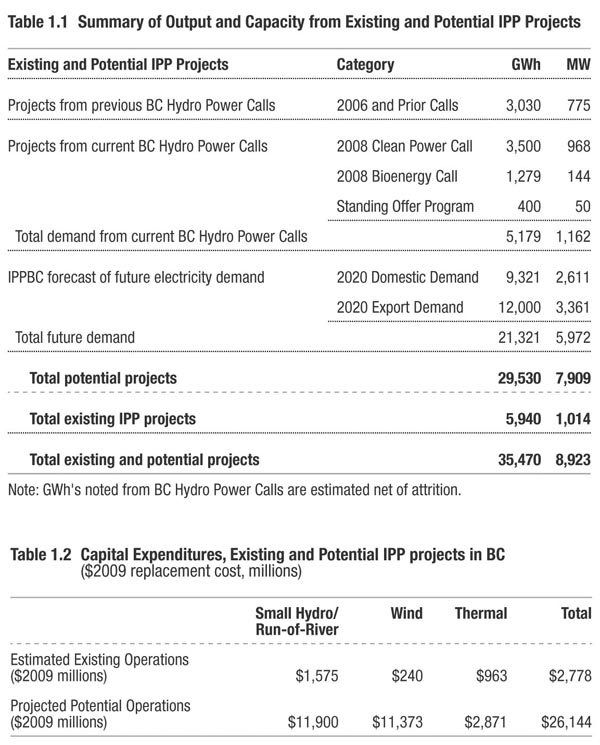Vancouver, BC: The economic stimulus that could flow from independent power project development in British Columbia is staggering, potentially producing $9 billion in economic activity and $29 billion in capital investment by 2020, according to a recent study by PricewaterhouseCoopers LLP (PwC).

The Independent Power Producers Association of BC (IPPBC) released a report in February on the economic potential of British Columbia’s clean and renewable energy sector. The study found that if the expected set of independent power projects proceed, they will generate not just 8900 MW of power but 87,000 person-years of employment for British Columbians in construction over the next decade, and more than 9,100 full-time jobs for the operation and maintenance of the projects over the longer term.
By 2020, capital spending in the IPP sector could reach $29 billion, PwC estimates. Government revenue – at all three levels of government – from the construction of IPPs could total $1.6 billion, while ongoing direct payments to government could reach approximately half a billion dollars annually.
“This study shows that clean energy development is a star on British Columbia’s economic horizon,” said IPPBC Executive Director Paul Kariya. “The jobs, investment and economic benefits created by the clean energy sector will be felt in every region of the province.”
“One of the top priorities identified in the BC government’s February 9 speech from the throne was maximizing the province’s “potential as a clean energy powerhouse and a global leader in climate action,” said Kariya. “We are pleased to see a commitment to new clean energy legislation and welcome the government’s recognition that clean energy development can play a critical role in BC’s economic future and quality of life while reducing our carbon footprint.”
The analysis is based on the IPPBC’s estimate of the growth in demand for electricity in British Columbia, on the assumption that the province will meet its goal of electricity self-sufficiency by 2016, and that exports of power will increase to a modest level of 12,000 gigawatt-hours per year. Currently, BC Hydro imports fossil fuel generated power from neighbouring jurisdictions to meet approximately 12% of the province’s electricity needs.
“British Columbia has an abundance of clean and renewable power resources. It’s economically and environmentally irresponsible that we continue importing dirty power from outside the province,” said Kariya. “Instead, we should use our clean energy resources to meet our own energy needs and grow our economy, while making a meaningful difference in the battle against climate change.”
Clean energy projects also deliver significant economic benefits to First Nations and rural and remote areas of BC hit hard by the decline in the forestry sector, IPPBC says. Many IPPs are partnered with local First Nations and are delivering economic and social benefits in their communities.
An Executive Summary and the full PwC report can be found on the IPPBC website. Search for the report title “Economic Impact Analysis of Independent Power Projects in British Columbia.”
The Independent Power Producers Association of BC represents 320 project developers and service providers in British Columbia’s clean energy sector. The role of IPPBC is to support the development and viability of an independent power industry that serves the public interest by providing clean, cost-effective electricity though the responsible development of electrical generation resources. For more information, see http://www.ippbc.com.
